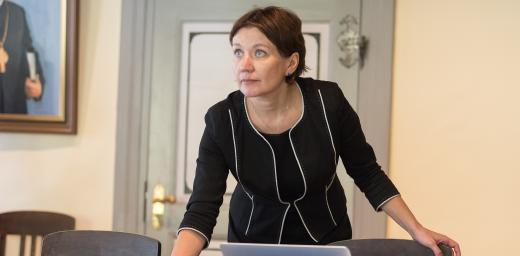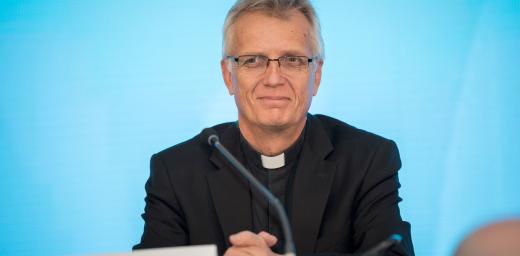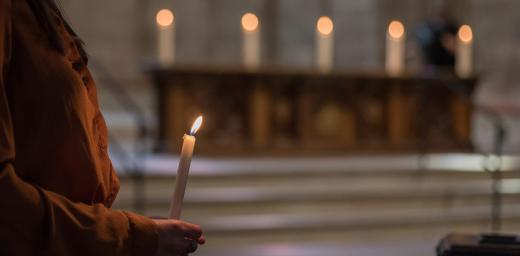Ancient and modern meet at Estonia’s Institute of Theology
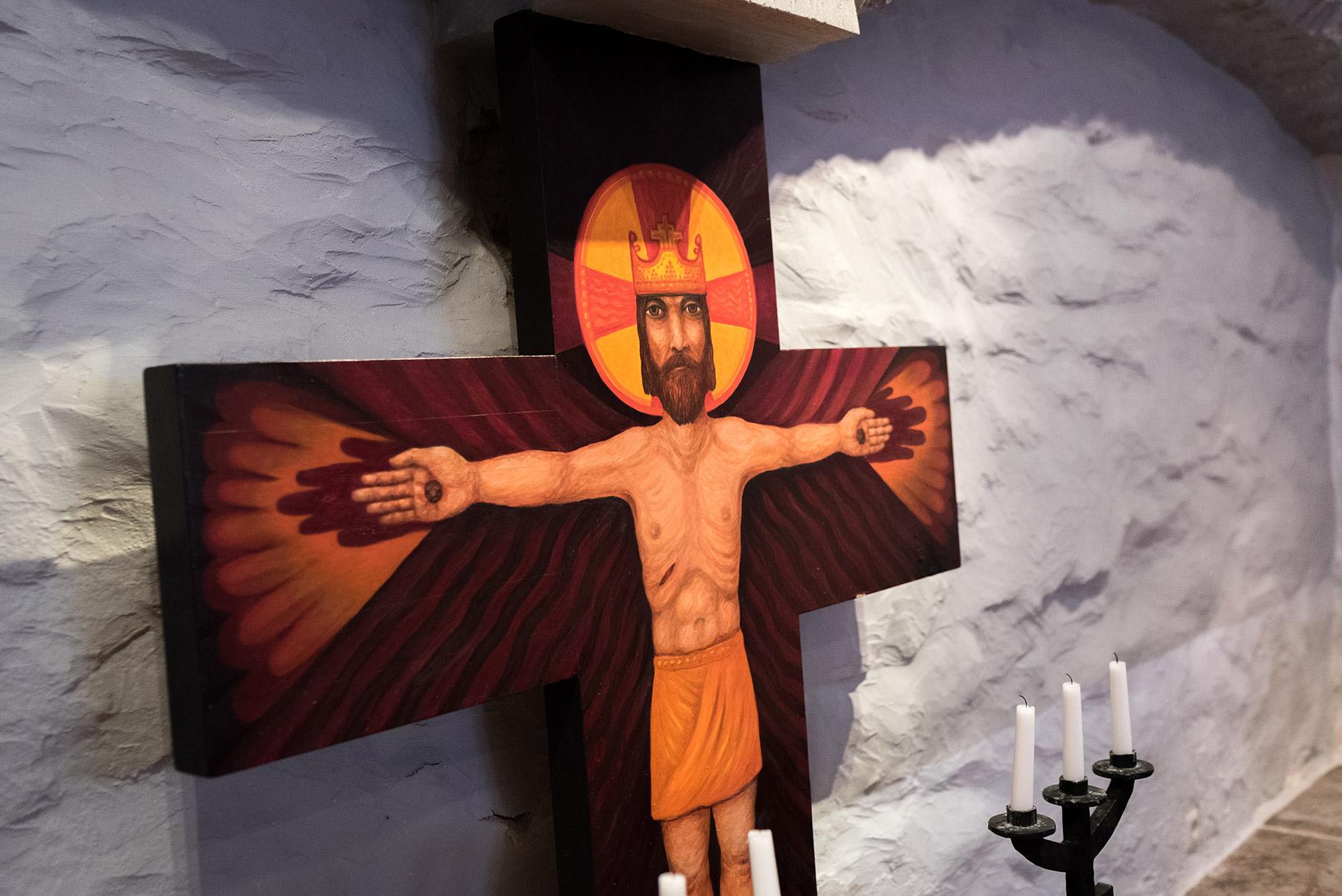
A contemporary crucifix on the altar of the chapel in the Estonian churchâs Institute of Theology in Tallinn. All Photos: LWF/A. Hillert
Discover the history and contemporary challenges facing Rev. Anne Burghardt and former colleagues in Tallinn
(LWI) - Walking into the Estonian Evangelical Lutheran Church’s Institute of Theology in Tallinn feels like stepping back in time to rediscover the events that have shaped the country and its people. Located within the walls of a medieval church and almshouse complex, the institute underwent major renovations in the 1990s, shortly after the country regained its independence from Soviet occupation.
Today, it offers in-person and online training in theology and history, liturgy and music, ecumenical and interfaith studies, as well as practical pastoral education, for over 140 students. The majority are middle-aged and working in a variety of jobs, having discovered that religion can offer an orientation for their everyday lives. It is here that the new General Secretary of The Lutheran World Federation (LWF), Rev. Anne Burghardt did her pre-ordination pastoral training, returning later to teach and serve as its development director.
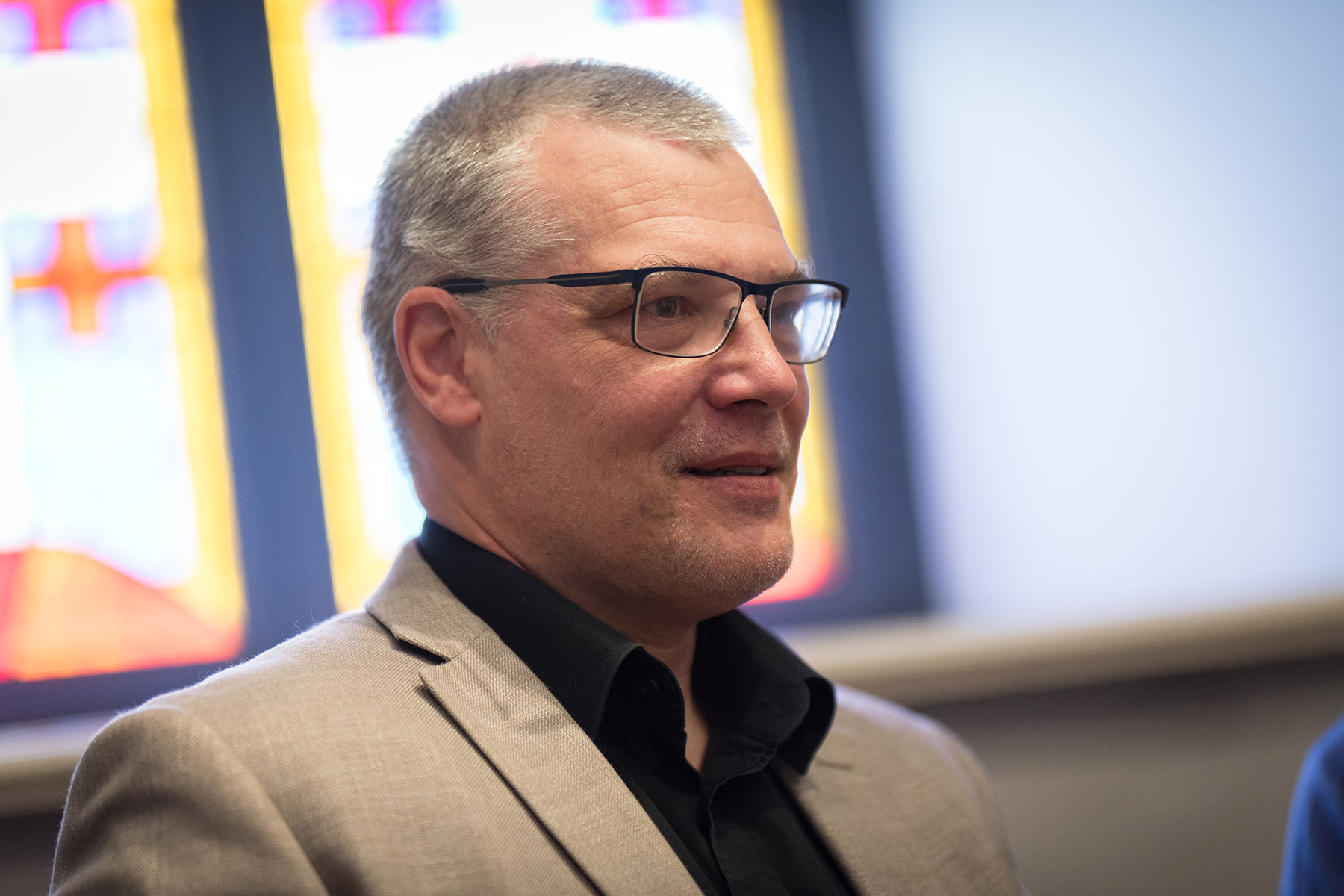
Rev. Marko Tiitus, acting rector of the Estonian Evangelical Lutheran Church’s Institute of Theology
Step into the institute’s dark flag-stoned hallway, down into the library housing thousands of precious volumes and “you can breathe the air of [past] centuries here,” says acting rector, Rev. Marko Tiitus. The adjacent 13th century Holy Ghost church was the first place in the country where services were held in Estonian after the Reformation and the first copies of Luther’s catechism in Estonian were printed there in 1535. On the whitewashed exterior wall of the church is a colorful, carved clock by the country’s Baroque master, Christian Ackermann.
The institute was established in 1946 with the mission of continuing to provide theological education in the country, after communist authorities closed the theology faculty of the famous university of Tartu, founded three centuries earlier. Tiitus explains that the dean of the new institute saw the importance of “keeping the traditions from Tartu alive.” He convinced the Soviets to maintain a place of theological education “to prove to the free world that they respected the right to religious liberty.”
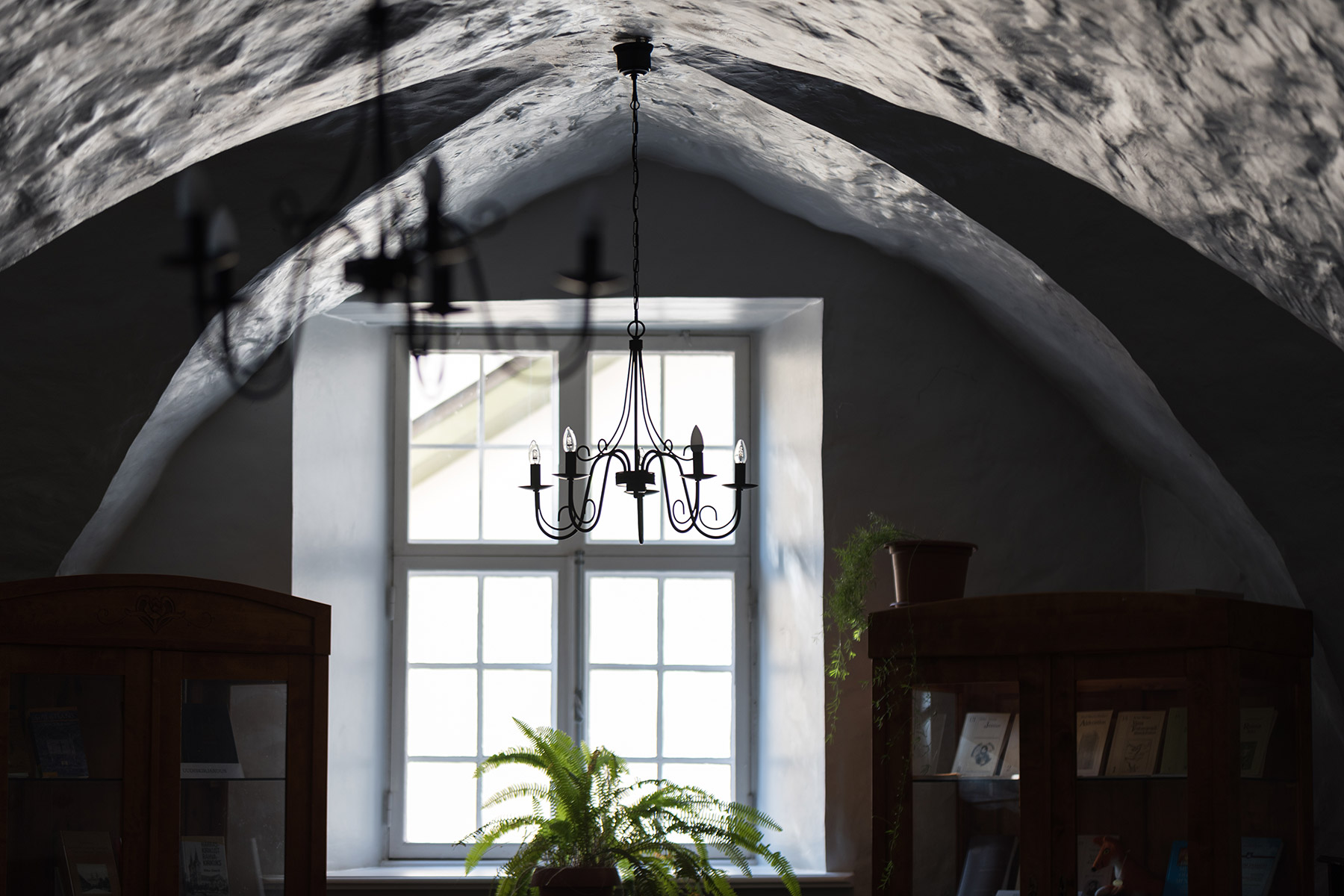
Window onto the free world: entrance hall of the Estonian Evangelical Lutheran Church’s Institute of Theology
Alongside its stated goal of training new Lutheran pastors, Tiitus continues, the institute became known as “an open window to the world, where people could receive education without ideological pressure.” Writers, artists, people of all different professions, he says, “came just to listen and learn how to read texts, how to go back to the sources, to think critically and to feel the atmosphere of academic free thinking.”
Though the institute remained open, contact with the West was largely forbidden. Among the tens of thousands of publications lining the library shelves are hand-typed and bound books that were painstakingly translated in secret from German or other languages where theological literature was freely available. Librarian Jana Lahe shows off volumes of biblical commentary that were copied and annotated by hand, before being smuggled back to Tallinn from a Siberian labor camp.
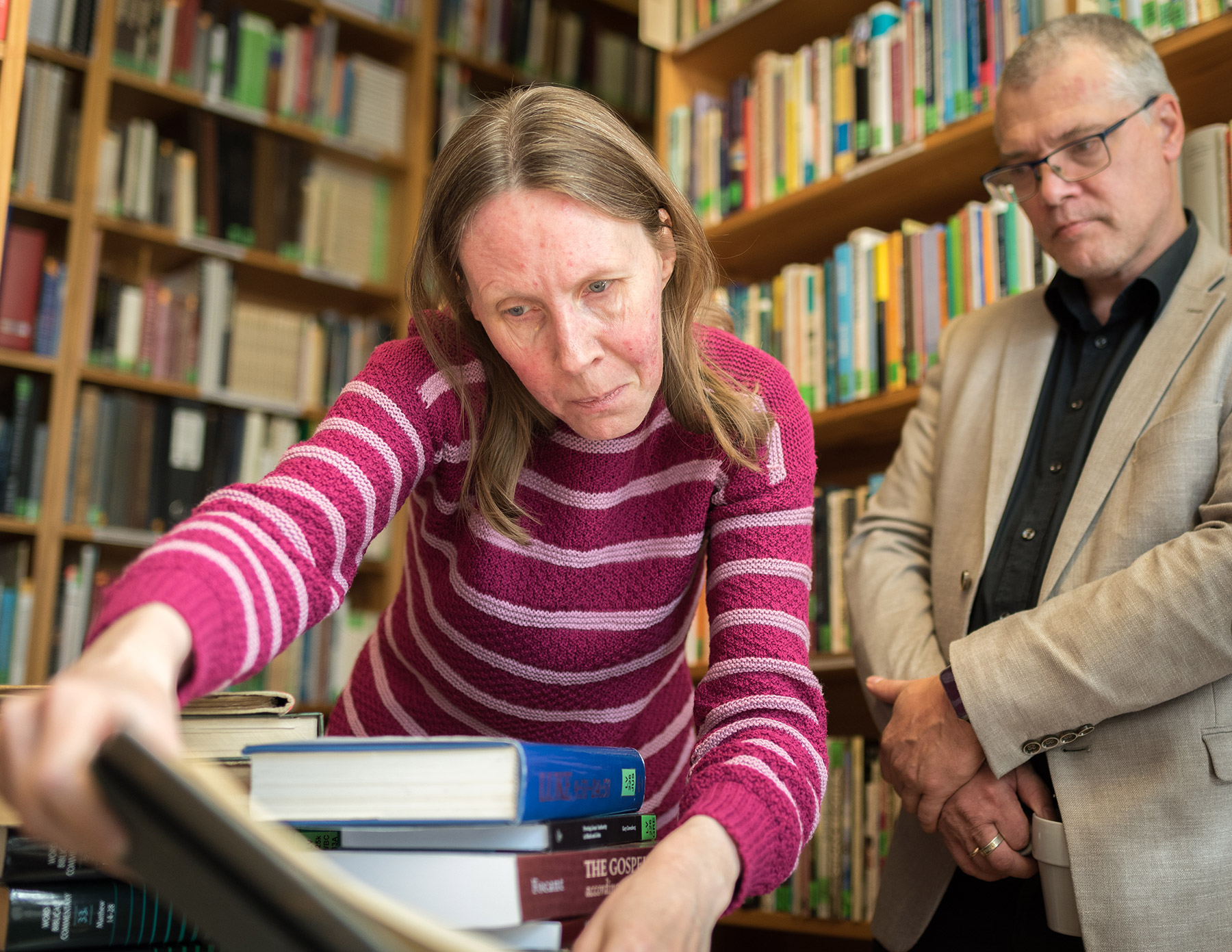
Librarian Ms Jana Lahe at the Estonian Evangelical Lutheran Church’s Institute of Theology with acting rector Rev. Marko Tiitus
Today, the institute maintains this twin track of training for ministry in its pastoral seminary, while also offering an academic education to other professionals with little or no religious knowledge. A key part of this “outreach mission” is its Masters’ program in Christian Culture and History, set up under the supervision of Rev. Anne Burghardt back in 2004. “Coming from a secular background herself,” says Prof. Dr Thomas-Andreas Põder, head of the institute’s chair of systematic theology, "she is able to make the beauty of the faith and gospel perceivable and understandable to others.”
Põder and Burghardt have known each other since high school – his father was the Lutheran pastor who led her confirmation class and started her on a journey towards ordination. They have worked together on numerous projects, from the publication of theology books to their participation in the first Lutheran-Orthodox dialogue in Estonia. “She has a passion for the gospel, for her work in the church,” he says, “but she also has experiences of an environment where most people have never had, or have lost, a connection to any Christian confession.”
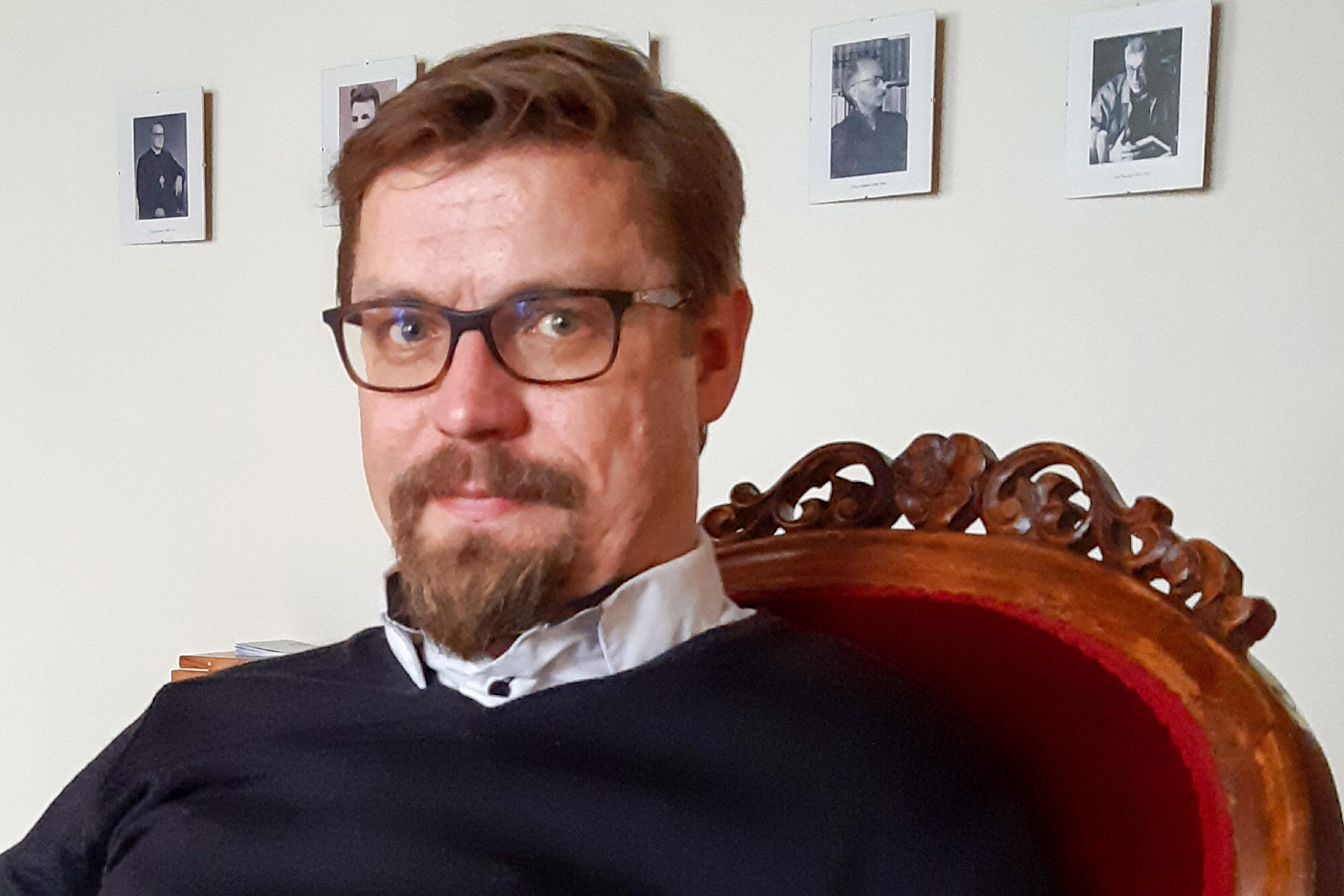
Prof. Dr Thomas-Andreas Põder, head of the chair of systematic theology at the EELC’s Institute of Theology
Despite its strong Lutheran heritage, which lasted throughout the first period of independence from 1918 to 1940, Estonia is today one of the most secularized countries in the world. According to the last census, Lutherans and the Orthodox churches together number less than one third of the population of 1.3 million people. “The numbers are not so important,” Põder says, “but the challenge is to provide a good witness to the gospel together.”
One concrete way in which this is happening is through the institute’s chair of Orthodox theology, a rare example of such high-level ecumenical cooperation within an academic institution. Mag.theol. Tauri Tölpt coordinates the department which was set up in 2014 and is proving increasingly popular with students from both denominations. “It is a beautiful witness of practical ecumenism to have this Orthodox specialization inside a Lutheran curriculum,” he says, “with strong friendships being forged at this formative level.”
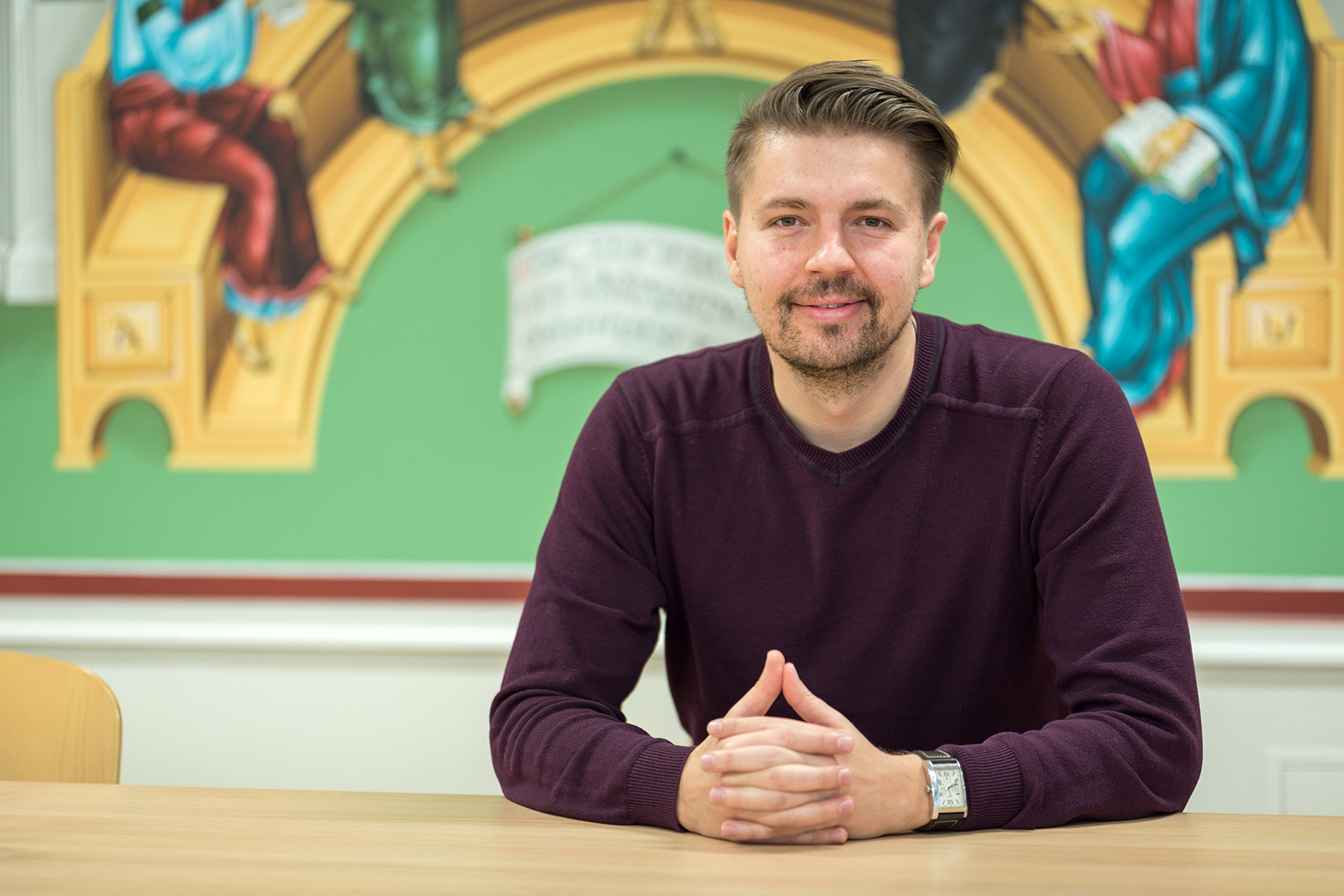
Mag.theol. Tauri Tölpt, director of the Estonian Orthodox theology institute and coordinator of the chair of Orthodox theology at the EELC’s Institute of Theology.
Tölpt is also director of the theology institute of the Estonian Apostolic Church, affiliated with the Ecumenical Patriarchate, while the majority of Orthodox believers in Estonia are members of the Russian Orthodox Church. There is little communication between these two communities, but Lutherans, Orthodox and the leaders of seven other smaller Christian denominations cooperate closely together through the Estonian Council of Churches.
Tõlpt underlines the importance of “giving common witness to our secular society,” stressing the need for “an educated clergy to provide answers to contemporary challenges.” He notes that churches have different ways of engaging in the public arena: “We focus more on the common patrimony of our ancestors, the Apostles and the Church Fathers, while Lutherans are much more open to engaging with political and ethical issues.” But he is enthusiastic about Burghardt’s new role as leader of the LWF: “We are proud of her, she represents us all,” he says, adding that she is currently completing her doctorate in Orthodox liturgics. “The biggest challenge for us all is to live the faith and to make it real, to touch the hearts of people today,” he concludes.
LWF/P. Hitchen


